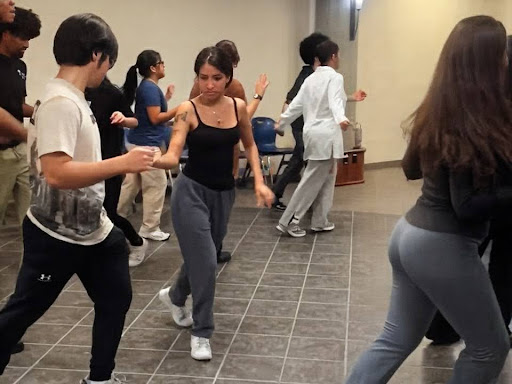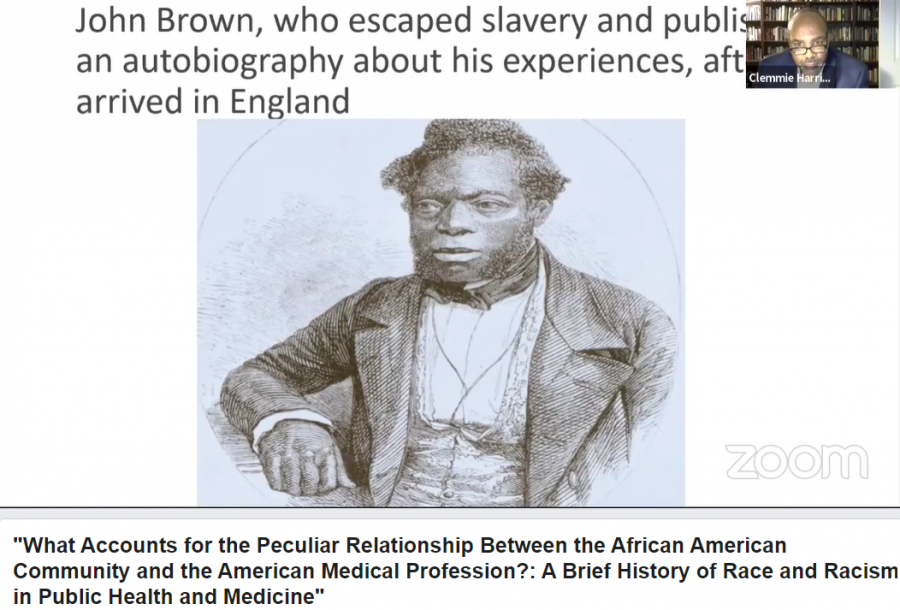On Feb. 23, History Professor Clemmie Harris presented a Zoom lecture on the history of race and racism within American public health system and medicine as part of Utica College’s Black Heritage Month programming and on-going dialogue on pertinent race and diversity issues.
In the presentation, titled “A Brief History of Race and Racism in Public Health and Medicine,” Harris used examples from both the past and present and to properly help us understand how roles such as class, race and gender help shape the structure of racism in the American public health system, medical science and its practice.
“These Systems have roots that stretch all the way back to the beginning of the Trans-Atlantic Slave system,” Harris said.
Harris began the talk by explaining some of the past. He pointed to Dr. J. Marion Sims and how he used enslaved women to develop a cure for a defect. Eventually, people began to stop funding his experiments and research so he ended up teaching enslaved people to help him with the operations he was doing to cure the defect.
Harris also spoke about the history of John Brown, a slave who escaped from Georgia and wrote an autobiography in England about his experiences there. Most of his experiences involved being worked on by a physician named Thomas Hamilton who was using Brown to prove there were physiological differences between blacks and whites. However, he also went into detail on how this was justified.
“The story of Ham, which is from the Book of Genesis, was racialized during the middle ages which was used to justify why it was ok,” Harris said.
Using more recent examples, Harris explained how race and racism are still shown in the American public health system. One example that he brings to light is the death of Bronx native Amber Issac, who died during an emergency C-section while giving birth to her son but passed shortly after.
“This specific event began a discussion where people questioned the inequities of the healthcare system for people, specifically for women of color,” said Harris.
Harris said she had tweeted about issues with doctors just days before her death and emergency C-section. Upon her death, her partner, Bruce Macantire, talked to local news station about Issac’s death, which he states was a situation that “could have been prevented” if she had been given more priority at the hospital.
Mancantire said this kind of neglect had been going on since the end of January 2020 and continued until April when she had her C-section.
After the event, Harris focused on the future, answering the question: “Where can we go from here?” To make a point, he went back into the past to make a reference to Martin Luther King Jr.
“Power properly understood is nothing but the ability to achieve purpose,” Harris said. “It is the strength required to bring about social, political and economic change.”
After his talk people got the chance to ask him questions on the topic. One student asked “What do you suggest allies can do to help combat racism in the medical field, especially from outside the field?”
Harris replied: “The power of allies lies in the education of racism, and how it lowers life for us all.”












































































































































